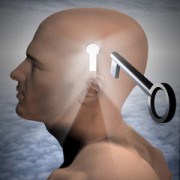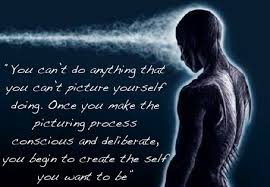Day Trading Psychology / Mentalism
Psychological And Mental Aspects Of Successful Trading – What Is An Engram?
 Day trading psychology, or day trading mentalism, refers to those branches of study that concentrate on mental perception and thought processes, like cognitive psychology. This is in opposition to disciplines, such as behaviorism, that see psychology as a structure of causal relationships to conditioned responses and seek to prove this hypothesis through scientific methods and experimentation.
Day trading psychology, or day trading mentalism, refers to those branches of study that concentrate on mental perception and thought processes, like cognitive psychology. This is in opposition to disciplines, such as behaviorism, that see psychology as a structure of causal relationships to conditioned responses and seek to prove this hypothesis through scientific methods and experimentation.
The reactive mind does not store memories as we know them. It stores particular types of mental image pictures called engrams. Engrams are a complete recording, down to the last accurate detail, of every perception present in a moment of partial or full “unconsciousness.”
“Unconsciousness” could be caused by the shock of an accident, anesthetic used for an operation, the pain of an injury or the delirium of illness. During these times, the analytical mind shuts down in full or in part and the reactive mind cuts in, in full or in part. An engram exists below the individual’s awareness level yet it can be activated so as to enforce its content, and can cause unevaluated, unknowing and unwanted fears, emotions, pains and psychosomatic illnesses.
For example, a man playing baseball is hit in the head by a pitcher’s ball and knocked out. Someone yells out to the pitcher, “You are no good.” Although the man is unconscious, these words and everything else going on are recorded in an engram; the smell of the dirt where he lay, the feeling of sweat on his brow and the sensation of heat from the afternoon sun. Months or even years after the incident, while watching a baseball game, many of these factors recorded in the engram are present in his current environment. These can re-stimulate the engram. The man suddenly and inexplicably gets a headache. He might also feel that he was “no good.” This engram in the reactive mind has been re-stimulated. The reactive mind is attempting to “prevent” the man from “getting himself into danger.” The reactive mind is not very intelligent.
Day Trading Psychology / WHAT ARE YOUR TRADING ENGRAMS?
…is it in your favor?
One of the reasons why people lose money in the market is lack of trading knowledge. No proper education on how the market moves. People think that they can quickly make money by simply investing in the stock market without proper education so they take short cuts and refuse to improve their trading knowledge. The result is, these people most of the time end up scared of the market after taking huge losses – that’s what we call trading engrams. What is an engram?
Day Trading Psychology Engram: “a mental image picture which is a recording of an experience containing pain, unconsciousness and a real or fancied threat to survival. It is a recording in the reactive mind of something which actually happened to an individual in the past and which contained pain and unconsciousness … It must, by definition, have impact or injury as part of its content. These engrams are a complete recording, down to the last accurate detail, of every perception present in a moment of partial or full unconsciousness.” (source: wikipedia)
An engram literally gets embedded into your body’s cells, it’s that powerful! When you are trading and become disappointed with what is happening, you are creating engrams. Every time you lose money in the stock market and something doesn’t go right, the emotion you feel creates an engram. You embed that not only in the brain cells, but you embed that in your body’s cells all the way to your fingers. That is why you have a hard time with the market, you have programmed yourself to always have a hard time with the market! Unless you change your engrams, your experience with the market will never change!
An engram becomes a belief. It is a belief that is not floating anymore but is now planted solidly within you. It is a belief that has been morphed into the cells of the brain and body. It becomes part of you. It is expected results in any similar situation.
Once you have a belief morphed into the brain, your subconscious mind will become whatever you have programmed in there. Whatever experience you engram into yourself with your emotions is what your experiences will be in similar situations, time after time, throughout your life. Your life right now is a precise picture of what you believe. Your trading results show what you believe. Unless you reprogram your brain with engrams of your experiences being consistently profitable in the market, your past results will be what you continue getting!
Day Trading Psychology / HOW DO WE CHANGE THESE ENGRAMS?
… By changing our repeated experiences.
Invest in yourself! Get a thorough education before you continue in your trading business! You are definitely worth it and so is your trading balance!
Your trading success is my only goal. I understand the key to successful trading is in retraining your brain. A large portion of your success in the market is because of your mental conditioning. When you approach the market as a place of risk, potential loss, fear or that you must win; you will lose money. The market rewards you when you operate with understanding of how and why it works the way it does.
Once you fully understand how trading truly works, a whole new world of comprehension will be available to you.
Providing yourself a complete in-depth education of all aspects of trading is the very best and cheapest investment you can make!
Day Trading Psychology / Your Subconscious Mind Has Been Pre-programmed To Sabotage Your Trading Account
July 14, 2012
Dealing With E-Mini Mentalism
 In psychology, mentalism is an umbrella term that refers to those branches of study that concentrate on mental perception and thought processes, in other words, consciousness, like cognitive psychology. This is in opposition to disciplines, most notably behaviorism, that believe the study of psychology should focus on the structure of causal relationships to conditioned responses, that is to say behaviors, and seek to prove this hypothesis through scientific methods and experimentation. Over the course of the history of psychology, mentalism and behaviorism have clashed, with one or the other representing the dominant paradigm of psychological investigation. (Source: Wikipedia).
In psychology, mentalism is an umbrella term that refers to those branches of study that concentrate on mental perception and thought processes, in other words, consciousness, like cognitive psychology. This is in opposition to disciplines, most notably behaviorism, that believe the study of psychology should focus on the structure of causal relationships to conditioned responses, that is to say behaviors, and seek to prove this hypothesis through scientific methods and experimentation. Over the course of the history of psychology, mentalism and behaviorism have clashed, with one or the other representing the dominant paradigm of psychological investigation. (Source: Wikipedia).
Professional EMini Futures traders know that to be successful, you must remove emotion from your trading. Traders without sufficient experience often make the mistake of thinking they are emotionless, only to find themselves pumping massive amounts of adrenalin and testosterone into their systems from being in a losing trade.
Professional EMini Futures traders know that trading without emotion requires a proven trading plan. Before entering any trade, experienced traders know their reasons for entering and exiting.
EMini Futures precognitive subliminal trading creates a clear trading plan for you to follow, so you will not second-guess yourself, nor find yourself bargaining with the Trading Gods.
Human beings are hard wired to feel certain emotions. The vast majority of us experience fear and greed, especially during the trading process. When we lose money we experience anxiety as trading accounts drop in value. When the losses mount, anxiety turns to fear as portfolio values drop below our comfort levels. If losses continue to mount, fear can turn into panic.
Consider the high percentage of novice EMini Futures traders who never become successful over the long term. The overwhelming majority of individuals empty their first live account TWICE! Why is it so hard to become successful?
The subconscious mind contains the software for your involuntary functions, emotions, and habits. Most of your habits and emotional conditioning were programmed in early childhood before you had mature faculties to make proper decisions. Many were programmed haphazardly and usually by parents, teachers, peers, TV and, recently, perhaps, computer games. Freud said, “We learn as children how we react emotionally and this is carried into adulthood. When we are children, we do not have the faculties that we do in adulthood. We do not know what we are going to need in adulthood to cope. Therefore, as adults we (often) react as children.”
These old programs are still influencing, if not controlling, your behavior even though many are counterproductive. Some may even be destructive. When you understand the subconscious mind and a few laws it obeys, you can change these childhood programs. You will become the master of your trading universe.
“Conscious Effort alone is never going to be enough!” …And you can’t fool the subconscious mind. Your subconscious mind has an internal protection switch when confronted with fear or anxiety. When the adrenalin amounts have reached sufficient levels to engage in flight or fight levels, the brain seeks an end solution. Fight causes decisions that blind the senses and results in aggressive decisions in order placements of entry and exit, eventually draining an account slowly over time.
in day trading psychology, once the brain realizes the account is slowly depleting the flight impulse becomes another option. Flight includes the subconscious self-sabotage of ones own account for the simple purpose of eliminating the constant over abundance of adrenalin in the system. Elevated heart rates and the resulting constant state of anxiety causing nervous tension are now on the radar. The brains self defense mechanism subconsciously devises a solution.
Inadvertently the subconscious mind is deliberately blowing your account by switching into protection mode whereby relieving all that stress on the system. No more account? No more stress!!! No more problem!!! The quicker this all happens, the better…. Self sabotage at it’s finest.
You see, your subconscious mind knows when you aren’t ready and whatever gains you have made were pure luck. It knows that you still haven’t acquired and developed the skills to be a truly proficient trader, to deal with the realities of trading.
It’s one thing to know what to do. It is an entirely different matter to know how to do it well. And at the time, you didn’t even really understand what you need to get good at, besides of course execution and sticking to your trading system.
Day trading psychology – Reduce Emotions While Trading:
- Are you finding excuses not to trade? Too groggy in the morning, need to mow the lawn before the sun comes up, need to do this, that, everything but trade!?
- Do you now simply sit with your cup of coffee in your hand every morning and watch your trading platform because your confidence has turned to doubt?
- Have you experienced trading losses that have affected your self-confidence? Is it so bad that you’re now having trouble “pulling the trigger”?
- Do not put yourself into a position where one trade can make or break your account. The less each trade means to your account, the less emotion you will have.
Day trading psychology suggests that people do not like to be wrong. After we take losses, we are angry, and want to get back at the market. We’ll enter trades just to get our money back, without forethought or consideration. A trade made irrationally from the beginning is doomed to fail. This is commonly referred to as “revenge trading”.
Games are meant for excitement. E-Mini trading should not be used for excitement. E-Mini trading is a very serious business, and should be treated as such. The whole ‘Discipline’ fallacy, is only a deviation from the real issue. It’s not a matter of discipline, it’s about becoming the trader with the skills, know-how, and tools to have the real confidence.
Confidence is the ability to create a trading plan and then execute according to that plan. In order to do this a trader must learn to stand outside of himself and become emotionally detached from the trade. When a trader creates a plan and executes, either making a profit or taking a small acceptable loss as allowed for in the plan, this creates a positive feedback loop. If trading is executed in this way and is repeated over and over again, then confidence is developed.
When you discover and develop the skills to become a real professional, to be aware of day trading psychology and to be good at trading, but with a very conscious competence…
…that’s when things will change.
It‘s when you change. When you change, your subconscious will know it – and finally let you enjoy real success.
Only when you change what you’ve been doing, when you stop looking for more tools more indicators, and chose to become a more solid trader…
…only then will your subconscious stop sabotaging your efforts.
If you want to put an END to self-sabotage in your trading, then doesn’t it make sense to get the training that will transform you into the type of trader?
Conclusion:
Studies show that 90% of our mind’s power is housed in the subconscious mind and is responsible for our behaviors, habits, and performance. Our subconscious brain has over 200,000 times more processing capacity than our conscious brain.
Day trading psychology awareness winning traders know this.
If you have a system with a positive expectancy it can be very helpful in building your confidence level. Every positive trade is recorded in your subconscious as positive feedback, which leads to the confidence to trade more using your tested methodology.
As you can see, our emotions control our every action, without us even knowing it. The only way a trader can remove their emotions from trading, is by following a pre-constructed pre-proven trading plan. Training and convincing the subconscious mind that yes, they indeed are consistent traders worthy of an account, and therefore the ultimate by-product …….SUCCESS.
Horst
Day Trading Psychology / Analytical vs. Intuitive Trading… Our minds are divided into two parts: The sub-conscious mind and the conscious mind.
Intuition can make you a much more effective trader, especially when you deal with non-standard situations or in expedient decision making. Yet, before you put more weight on intuitive choices, there are a few important points you need to keep in mind.
When do y ou need intuition?
ou need intuition?
Decision making trading situations where intuitive approach can help most include the following:
- Expedient decision making and rapid response are required. The circumstances leave you no time to go through complete rational analysis.
- Fast paced change. The factors on which you base your analysis change rapidly.
- The problem is poorly structured due to lack of sufficient data.
- The factors and rules that you need to take into account are hard to articulate in an unambiguous way.
- You have to deal with ambiguous, incomplete, or conflicting information.
- There is no precedent.
Day Trading Psychology / What is intuition? …. The Sub-Conscious Mind
Day trading psychology suggests the sub-conscious mind is like a guidance-system. It runs on auto-pilot in the background all the time. It is freely programmable and open to any sort of commands and instructions. When we are born the sub-conscious mind consists only of basic reptilian functions essential for our survival, i.e. breathing, the heart needs to pump and we need food and water. Besides that, the sub-conscious mind is empty and ready to be programmed with instructions that we feed it.
These instructions come from the conscious mind. Every time we say something like ” I suck at trading”, we enter these instructions into our sub-conscious mind. With enough repetition of these instructions, the sub-conscious mind has no choice but to follow them, resulting in the fact that you suck at trading.
If you have any form of self-sabotaging thoughts and wonder why you are not as good as you would like to be, then the reason is that you are programming your sub-conscious to guide you in the direction of these thoughts. Of course, the opposite is true also. If you consciously think of good thoughts and processes, these are the thoughts that will get programmed into your sub-conscious mind.
First, what do I mean by intuition in the context of decision-making? Researchers at the University of Pennsylvania School of Medicine estimate that the human retina can transmit visual input at at roughly 10 million bits per second. Another study suggests that the subconscious mind processes about 400 billion bits of information per second and the impulses travel at a speed of up to 100,000 mph! Compare this to your conscious mind, which processes only about 2,000 bits of information per second and its impulses travel only at 100-150 mph. We have 50 trillion cells in our body performing trillions of processes – so an enormous processing power is required. Another take: only about 0.01% of all the brain’s activity is experienced consciously. In other words, it is as if roughly 10,000 cinema films are actually going on in the brain all at once, while we are only consciously aware of one of them. Altogether then, the data rate processed by the brain is an astronomical 320 Gb/s! (read the full paper) While different definitions emphasize different aspects, there are three key features that characterize the intuitive mode of thinking.
- The process is dominated by your subconscious mind, even if you use your conscious mind to formulate or rationalize the final results. The subconscious mind can spit out your answer 200,000 times faster than the conscious mind. The subconscious mind can process 10,000 videos at one time, versus the conscious minds ability to decipher only 1.
- The information is processed in parallel rather than sequentially. Instead of going through a logical sequence of thoughts one by one, you see the situation more as a whole, with different fragments emerging in parallel.
- You are more connected with your emotions. For example, it may occur to you that an option you consider does not feel right, even though there is no clear logic to prove that.
Day Trading Psychology / Intuition versus analytical/rational analysis…. The Conscious Mind
 The conscious mind is the critical and analytical section of our minds. This is where we do math, solve problems, learn a language or make decisions. I think the ‘learning a language’ is a good example of the conscious and sub-conscious mind. When we start out, we have to actively read, analyze and learn the language. We learn the grammar, vocabulary and rules. By doing this active learning with our conscious mind, we are slowly programming the data into our subconscious minds. Learning the language is complete when we finish that programming into the sub-conscious mind. We then no longer need to think about words or translate them from our native language, instead we just think in the new language. It has become automatic.
The conscious mind is the critical and analytical section of our minds. This is where we do math, solve problems, learn a language or make decisions. I think the ‘learning a language’ is a good example of the conscious and sub-conscious mind. When we start out, we have to actively read, analyze and learn the language. We learn the grammar, vocabulary and rules. By doing this active learning with our conscious mind, we are slowly programming the data into our subconscious minds. Learning the language is complete when we finish that programming into the sub-conscious mind. We then no longer need to think about words or translate them from our native language, instead we just think in the new language. It has become automatic.
The main alternative to the intuition-based approach is analytical thinking. The analytical decision making process relies mostly on quantitative, scientific, engineering like analysis. You consciously analyze all the options with precision. You formulate the main criteria for judging the expected outcomes of your options and you assign certain weights to those criteria to reflect their relative importance. Then, based on the precise expected outcomes and their weights, you rate your options by their perceived utility. Finally, you choose the option that has the highest rating. It’s either “black or white”, without any “gray area”. By the time you decide, the trade has long left the station, since it’s a conscious analysis and decision rather than a subconscious one.
Day trading psychology how it works
The simplest way to make sense of why and how intuition works is to think of it as an advanced pattern recognition technique. Your subconscious mind somehow finds links between your new situation and various patterns of your past experiences. You may not recall most of the details of those experiences. And even if you did, it may be very hard to express the lessons you have learned in a form acceptable for analytical reasoning. Yet, your subconscious mind still remembers the patterns learned. It can rapidly project your new circumstances onto those patterns and send you a message of wisdom. That message comes as your inner voice and will most likely be expressed in the language of your feelings. For example, some of the options or solutions you consider may not feel right to you, yet others do with a high degree of accuracy.
Day trading psychology how to use intuition effectively
The first important thing to keep in mind is that when you rely on intuition. it is very important to do your homework to “INITIALLY PROGRAM” your subconscious mind. The intuition will then and only then help you navigate faster through much of unstructured data and can work around certain gaps and conflicts in the available information. Yet, even intuition can be misled if too many of your facts are wrong or missing.
Pay very close attention to your emotional state. If you are stressed or in a bad mood, your true inner voice will be distorted or lost in the background of your strong negative feelings. A similar effect may happen with strong positive feelings. If you want to hear your inner voice, get over the background of your strong feelings. Know your inner self. Your emotions need be able to be self-transparent and understood with your conscious efforts to understand them. Like an oil pressure gauge in your car. You need to be able to monitor your emotional pressure and act accordingly. The needle on your emotional gauge needs to be in the normal/neutral range to function properly. Needle too low or too high needs to be recognized and taken into consideration before trading. Feel them through or let them go. Take a walk. Do something refreshing. Say your prayers. Forgive and accept. Un-clutter your mind. TAKE SOME TIME OFF. If the emotional needle in your gauge isn’t in the middle where it needs to be, don’t trade until your emotional pressure is back to normal. Self awareness is one of the MOST important aspects of trading.
Following this procedure is an effective way to feed your subconscious mind with all the relevant data it needs to listen to your inner voice and also un-clutter your mind.
Day trading psychology. Trust Your Sub-Conscious Mind:
Day trading psychology : In trading, when we are placed in unfamiliar situations or confronted with unknown problems, it is often a good idea to go with what feels best. Most of the time your sub-conscious mind knows what to do. Do not shut it out. Try to listen to it more and get in touch with it. If you have trained it properly, trust that it has your best interest at heart and allow it to lead you.
You know that feeling you get sometimes where you can’t explain why something does not feel right? You cannot explain why but you just know it. (For example a bad / good feeling you get when you meet a person for the first time.) This is your sub-conscious mind that has picked up something in the surrounding or situation that it knows is not right. Your sub-conscious mind can often pick up signs of market anxiety or confusion before you can logically deduce them. This is why you get that bad / good feeling sometimes. Learn to trust those feelings.
The sub-conscious mind is a survival mechanism. If trained properly you can use it to trade on auto pilot. If not trained properly it can lead you down the path of destruction by implementing self survival tactics. It can devastate your trading account with self sabotage in the process of protecting you from harm in forms of unnecessary stress, anxiety, and adrenalin. No funds left in your account… no more stress, problem solved.
Horst


